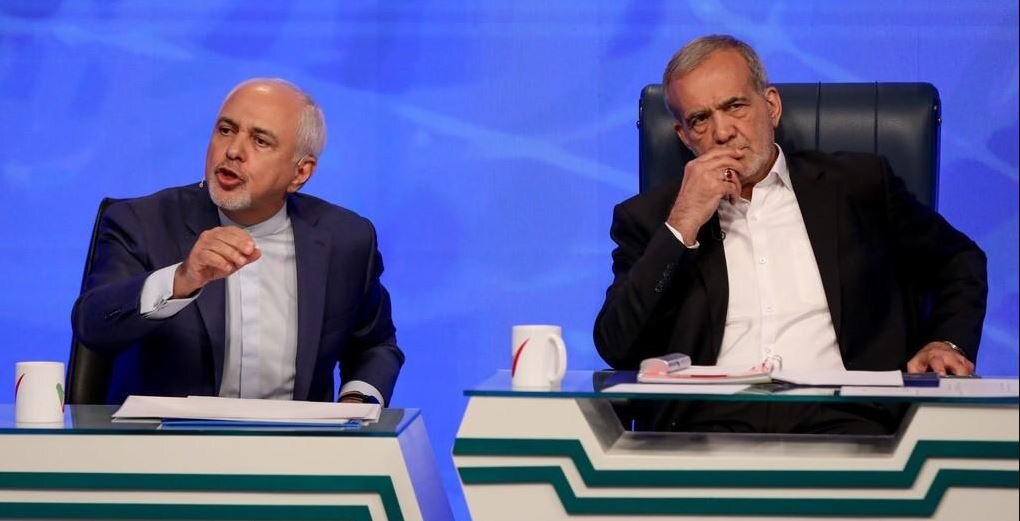Pezeshkian says Zarif will be involved in administration as adviser

TEHRAN – Iranian President Masoud Pezeshkian has confirmed that his administration will make use of the expertise of former Foreign Minister Mohammad Javad Zarif as an advisor, highlighting the government's commitment to leveraging the expertise of those who have diligently served the country.
Speaking on Saturday, on the sidelines of a session at the Iranian Parliament, Pezeshkian reiterated his administration’s focus on national unity and cohesion in the selection of his proposed ministers.
He emphasized that his approach in forming the cabinet was to rise above political divisions, ensuring that the chosen individuals represent a broad spectrum of Iranian society.
Addressing questions about the extent of Zarif’s involvement with the new government, Pezeshkian reaffirmed that Zarif’s experience and insights would be invaluable.
"We will utilize his expertise as an advisor. Our government is committed to engaging with anyone who has worked tirelessly for this country, no matter their perspective or belief system. We deeply appreciate those who have a sincere passion for Iran, who are knowledgeable and capable. We will welcome them with open arms and seek their help in guiding the country through its current challenges."
In a decree following his presidency, Pezeshkian had appointed Mohammad Javad Zarif as his deputy for strategic affairs and the chief of the Presidential Center for Strategic Studies.
Zarif, however, resigned from his role following Pezeshkian’s presentation of ministerial nominees to parliament for approval. He stated that his decision was to end his involvement in domestic politics and to return to academia while reaffirming his commitment to supporting President Pezeshkian.
Zarif, 64, was foreign minister from 2013 to 2021 under President Hassan Rouhani.
He was Iran’s chief negotiator in the nuclear talks that led to the 2015 nuclear deal, officially called the Joint Comprehensive Plan of Action (JCPOA). The agreement, endorsed by the UN Security Council Resolution 2231, was ditched by former U.S. President Donald Trump as he withdrew the U.S., the main party to the agreement, from the deal.
Zarif also served as Iran’s representative at the United Nations during the presidency of Mohammad Khatami.
